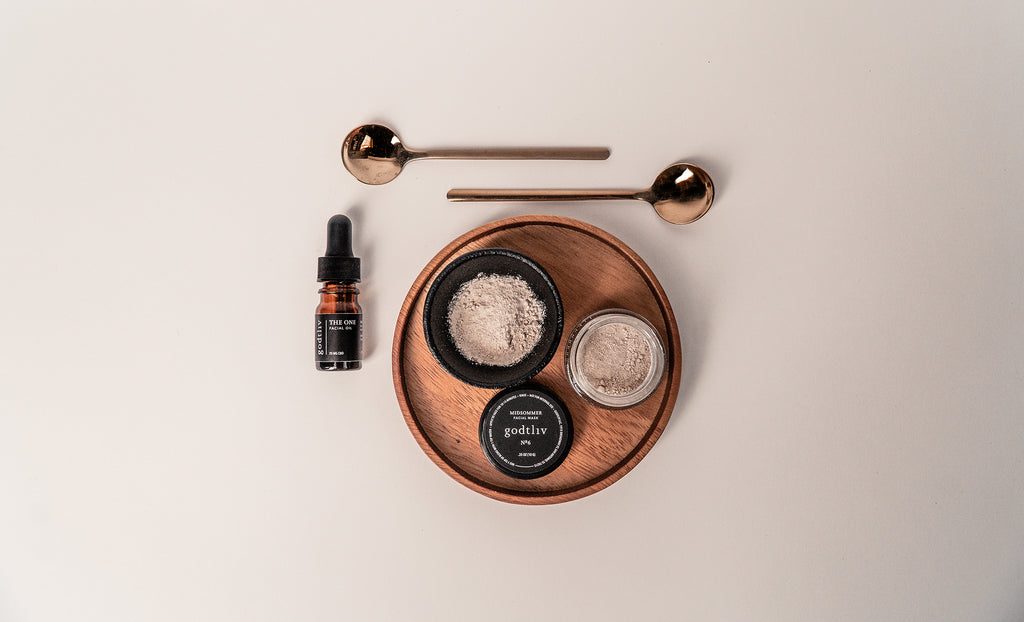Hand-blended facial masks give us the benefits of mineral-rich clay while responding to our skin’s unique needs, which may change through the course of a month or year. Because they’re not pre-blended and sitting on store shelves for months at a time, they don’t require preservatives, which often contain harsh chemicals.
The simplest clay facial mask recipe is to use equal parts of clay and water, but we’ve included some ideas for a more tailored approach.
Honey
Honey has antibacterial properties and speeds the healing of infections and wounds. It is also a humectant, which means it helps skin to attract and retain moisture. This unique combination of properties makes it suitable for all skin types. If possible, use raw or Manuka honey, as much of the cheaper “honey” sold in grocery stores is adulterated and often is actually corn syrup.
Yogurt
When milk ferments, bacteria turn lactose—the naturally occurring sugar in milk—into lactic acid. This mild acid serves as a gentle exfoliator without causing irritation and is a popular ingredient among skincare fanatics. When applied topically, lactic acid gently dissolves the dead skin cells of the outermost layer of the skin leaving fresh, radiant skin.
Cucumber Juice
In addition to its hydrating water content, cucumber is packed with vitamin C and caffeic acid, both of which soothe inflamed or irritated skin. Because cucumbers have the same pH as skin, they also help maintain its protective acid mantle—the thin acidic film on your skin that acts as a barrier to bacteria, viruses, and other contaminants. Cucumber’s naturally cooling effects make it a great addition to facials in the summer months.
Aloe
Aloe contains antioxidants, enzymes, Vitamins A and C, and it is highly anti-inflammatory. It helps treat burns and acne and because it is a humectant, it can help to moisturize dry skin. However, because it has mild exfoliating qualities, it can be overly drying if used too often.
Lemon Juice
Lemons contain citric acid, a natural form of alpha hydroxy acid, which acts an astringent and can help control oily skin and acne. However, be sure to avoid direct sunlight for 24 hours (wear a hat and sunscreen) after applying it to the skin as it can make your skin more sensitive to UV rays. If you’re concerned about sun exposure, you can use apple cider vinegar as an alternative.
Rose Water
With hydrating and soothing abilities, as well as natural antiseptic, anti-inflammatory, and antibacterial properties, it’s one of those ultimate skincare powerhouses. Rose water is the perfect balancing treatment for skin, as it corrects pH prevents skin from becoming too oily or too dry.


Leave a comment: